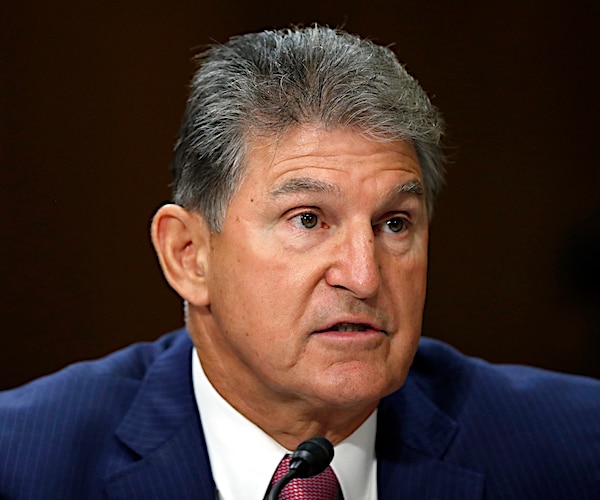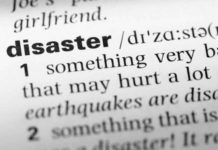Sen. Joe Manchin, D-W.Va., is calling for a “pause” on the Democrats’ $3.5 trillion spending bill, believing the total amount is just too hard of a sell to the American people and saying Senate Majority Chuck Schumer, D-N.Y., will not have his vote at that amount.
“He will not have my vote on 3.5 [trillion dollars],” Manchin told CNN’s “State of the Union.” “Chuck knows that. We’ve talked about this.
“We already put out $5.4 trillion and tried to help Americans in every way we possibly can. A lot of the help we put out there is still there and is going to run until clear of next year 2022.
“What’s the urgency? What’s the urgency we have? It’s not the same urgency we had with the American Rescue Plan. We got that out the door quickly, about $2 trillion. On top of that, with the C.A.R.E.S package, leading up to that.
“There’s still an awful lot of people you need to help, but you have 11 million jobs that aren’t filled right now. Something is not matching up. Don’t you think we ought to hit the pause and find out?”
Manchin told NBC’s “Meet the Press” he is a “hard no” at $3.5 trillion and said he will not be the “lone vote” against it.
“I’ve said if I can’t go home and explain it, I’m not going to vote for it,” Manchin told host Chuck Todd.
Manchin’s biggest sticking point on adding another $3.5 trillion in spending is the unspent money from the coronavirus relief packages from the past 18 months.
“There’s $60 billion that’s not out the door yet,” Manchin told CNN host Dana Bash. “Only thing I’m saying is why the urgency to spend another $300 billion toward that when you don’t have $60 billion that went out?
“Why are we not able to get into that, to make sure that the administration is able to disperse the money to get it to where it needs to help.”
Pressed on what his number for the budget would be, Manchin did suggest it is fluid.
“My ceiling is this: The need of the American people, for us to basically take into consideration inflation,” Manchin said. “No one is concerned about the debt. Our debt as of Friday was $28.75 trillion.”
The more urgent need is the $1.2 trillion infrastructure bill that has already passed the Senate and is sitting in the House, Manchin stressed, even if Democrats are hoping to bundle the large spending bills together to send to President Joe Biden’s desk.
“The bottom line is, do we have the urgency to spend another $3.5 trillion right now?” Manchin said. “The most urgent thing we have to do is get the bipartisan infrastructure bill that’s gone left unattended for over 30 years, deferred maintenance throughout every part of our nation.
“That’s the one. The president went out and campaigned on that. That’s his bill. We worked it in a bipartisan way. Got 19 Republicans to vote for it. That’s the bill that should go out immediately.”
The 2022 midterm races have other Democrats concerned about massive spending initiates, too.
“You’ve got all these Democrats in the center who are quietly saying ‘I don’t want to support $3.5 trillion because who wants to run on that given the current climate?”” one strategist told The Hill. “Have you seen some of the recent polls coming out of the states?”
Regardless, the White House is undaunted and “pushing forward,” senior adviser to the president Cedric Richmond told ABC’s “This Week” in an interview that aired Sunday.
“Look, Sen. Manchin is a valued partner. We’re going to continue to work with him, but we’re also going to continue to push our agenda,” Richmond told host George Stephanopoulos.
“It’s not abnormal for this to happen in the legislative process . . . we’re still full steam ahead on trying to get our legislation passed,” he added.
White House chief of staff Ron Klain told Bash on “State of the Union” that Manchin’s “very persuadable.”
“If I had a nickel every time somebody’s told me this package has been dead, I would be a very, very rich person,” White House chief of staff Ron Klain tells CNN’s Dana Bash on “State of the Union.” “It was dead back in May, when there was initial opposition to it. It was dead in June, the day the president went to Europe. It was dead in July again.
“All I’ve heard is how this package would be dead and yet, amazingly, it continues to push through. The bipartisan infrastructure plan passed the U.S. Senate and the House adopted a rule for its ultimate passage and later in September.
“And the reconciliation bill, both the House and Senate have adopted the budget structure to pass it, and the House is now in committee markups this week and next week to pass it.
“We have worked with Sen. Manchin every step of the way. He’s been a partner of our administration.”
Democrats need all 50 of their party’s Senate votes, plus Vice President Kamala Harris’s tie-breaking vote, to pass the bill, but with Manchin opposing the price tag of the bill, that makes his vote critical. Others like Sen. Amy Klobuchar, D-Minn., though, have said they think Manchin can be swayed, as in the past he has been “willing to get to a place that’s the right place to be.”
But Manchin who launched his opposition to the bill with an opinion piece for The Wall Street Journal, says he does not support the measure because the nation’s debt has reached “record levels” and the nation’s overheating economy is imposing an “inflation tax” on middle-and working-class Americans.
“At $28.7 trillion and growing, the nation’s debt has reached record levels,” he wrote. “Over the past 18 months, we’ve spent more than $5 trillion responding to the coronavirus pandemic. Now Democratic congressional leaders propose to pass the largest single spending bill in history with no regard to rising inflation, crippling debt, or the inevitability of future crises.
“I, for one, won’t support a $3.5 trillion bill, or anywhere near that level of additional spending, without greater clarity about why Congress chooses to ignore the serious effects inflation and debt have on existing government programs.”
Meanwhile, Manchin’s reluctance is not the only roadblock the spending bill is facing, as there are several moderate House Democrats who are not happy about the package’s price tag. Democrats will only be able to lose three votes in the tightly divided House, if Republicans stay unified against the bill.
Manchin, meanwhile, has called on the House to quickly pass the Senate-approved $550 billion bipartisan infrastructure bill, but House progressives are calling for a simultaneous vote on the infrastructure and reconciliation bills.
“If that is not the case, then they shouldn’t count on us,” Rep. Alexandria Ocasio-Cortez, D-N.Y., said.
Senate committees have a deadline of Sept. 15 to finish work on the bill. Manchin in August voted with other Senate Democrats to help pass a fiscal blueprint for the larger bill, but at that time did not commit about whether he would back the $3.5 trillion measure.
Manchin and fellow moderate Sen. Kyrsten Sinema, D-Ariz., have both been seen by Republicans as their best chances at defeating the Democrats’ large economic plans.
“These are two Democratic senators that seem to have some real resistance to all this,” Senate Minority Leader Mitch McConnell, R-Ky., said during an event in Kentucky. I pray for their good health and wise judgment every night. I recommend you do the same.”
Far-left Senate Democrat Bernie Sanders, who chairs the Senate Budget Committee, blasted as “absolutely not acceptable” Manchin’s threat to doom the bill.
“I don’t think it’s acceptable to the president, to the American people or to the overwhelming majority of the people in the Democratic caucus,” Sanders told CNN, adding the huge public investments were crucial for “the enormously unmet needs of working families.”
The infrastructure bill and the larger budget plan have been inextricably linked since negotiations began, he insisted, and “it would be a terrible thing for the American people if both of those bills fail.”




